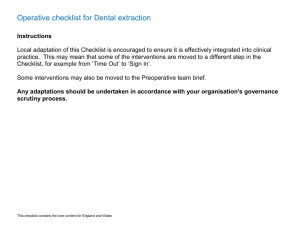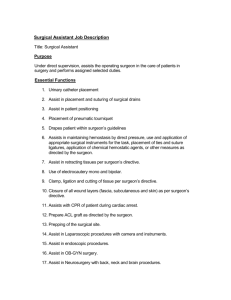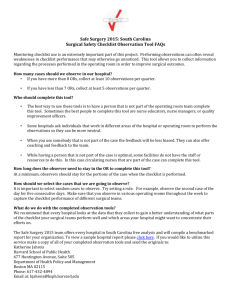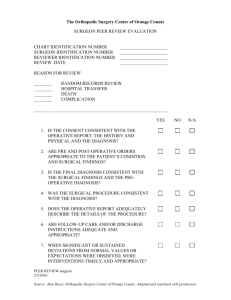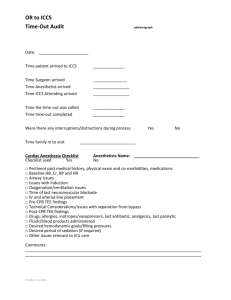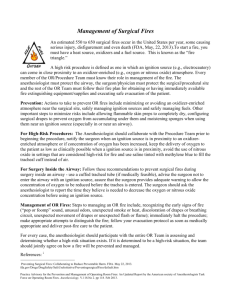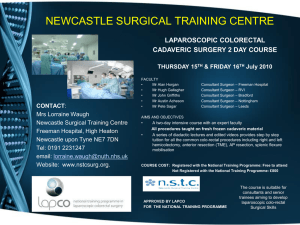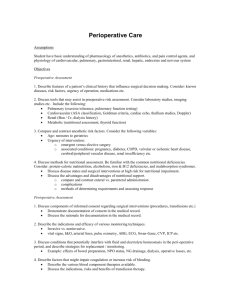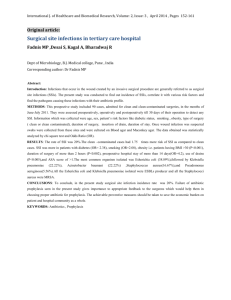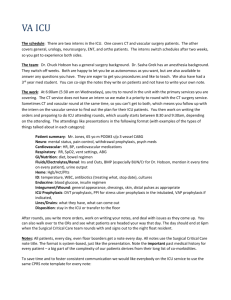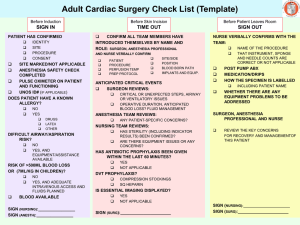BRIEFING - Before induction of anesthesia
advertisement
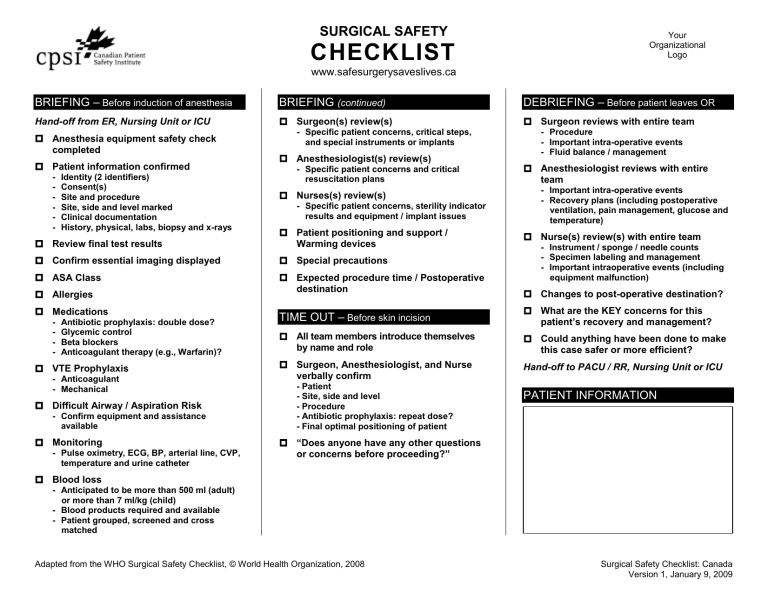
SURGICAL SAFETY CHECKLIST Your Organizational Logo www.safesurgerysaveslives.ca BRIEFING – Before induction of anesthesia BRIEFING (continued) DEBRIEFING – Before patient leaves OR Hand-off from ER, Nursing Unit or ICU Surgeon(s) review(s) Surgeon reviews with entire team Anesthesia equipment safety check completed Patient information confirmed - Identity (2 identifiers) Consent(s) Site and procedure Site, side and level marked Clinical documentation History, physical, labs, biopsy and x-rays - Specific patient concerns, critical steps, and special instruments or implants Anesthesiologist(s) review(s) - Specific patient concerns and critical resuscitation plans Nurses(s) review(s) - Specific patient concerns, sterility indicator results and equipment / implant issues Review final test results Patient positioning and support / Warming devices Confirm essential imaging displayed Special precautions ASA Class Expected procedure time / Postoperative destination Allergies Medications - Antibiotic prophylaxis: double dose? Glycemic control Beta blockers Anticoagulant therapy (e.g., Warfarin)? VTE Prophylaxis - Anticoagulant - Mechanical Difficult Airway / Aspiration Risk - Confirm equipment and assistance available Monitoring - Pulse oximetry, ECG, BP, arterial line, CVP, temperature and urine catheter - Procedure - Important intra-operative events - Fluid balance / management Anesthesiologist reviews with entire team - Important intra-operative events - Recovery plans (including postoperative ventilation, pain management, glucose and temperature) Nurse(s) review(s) with entire team - Instrument / sponge / needle counts - Specimen labeling and management - Important intraoperative events (including equipment malfunction) Changes to post-operative destination? TIME OUT – Before skin incision What are the KEY concerns for this patient’s recovery and management? All team members introduce themselves by name and role Could anything have been done to make this case safer or more efficient? Surgeon, Anesthesiologist, and Nurse verbally confirm Hand-off to PACU / RR, Nursing Unit or ICU - Patient - Site, side and level - Procedure - Antibiotic prophylaxis: repeat dose? - Final optimal positioning of patient PATIENT INFORMATION “Does anyone have any other questions or concerns before proceeding?” Blood loss - Anticipated to be more than 500 ml (adult) or more than 7 ml/kg (child) - Blood products required and available - Patient grouped, screened and cross matched Adapted from the WHO Surgical Safety Checklist, © World Health Organization, 2008 Surgical Safety Checklist: Canada Version 1, January 9, 2009
